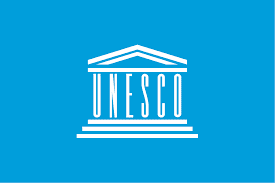Deadline: 16-Feb-24
The United Nations Educational, Scientific and Cultural Organisation (UNESCO) is accepting proposals for the Memory of the World Initiative to Safeguard Documentary Heritage at Risk to protect the world's documentary heritage from the risk of damage and disappearance due to hazards resulting from human-induced disasters by granting financial support to projects on the ground.
PREMIUM SUBSCRIPTION ACCESS
Download free ebooks on "Grant Opportunities without Deadlines" and "New and Innovative Ideas for Fundraising"JUNTAR
At a time of increasing environmental problems caused by climate change, growing conflicts and wars, documents of universal value are not exempt from being permanently damaged or destroyed. The documentary heritage at risk includes many forms of paper and audiovisual materials, but digital repositories and collections are also vulnerable to growing global challenges.
Thus, UNESCO's Memory of the World Programme provides financial support to projects at national, regional or international level that respond to specific needs on the ground to safeguard all forms of endangered documentary heritage and ensure their accessibility, including in a post-crisis scenario.
The mission of UNESCO's Memory of the World Programme is to facilitate the preservation of the world's documentary heritage, enable universal access to it and raise public awareness of its importance. Anchored in UNESCO's 2015 Recommendation on the Preservation of and Access to the Documentary Heritage, including in Digital Format, the issue of preserving documentary heritage allows for greater linkage to other international development agreements, notably the Sendai Framework for Reducing Climate Change. Disaster Risk 2015-2030, which provides a useful mechanism for discussing possible policy actions for the preservation of documentary heritage.
PREMIUM SUBSCRIPTION ACCESS
Download free ebooks on "Grant Opportunities without Deadlines" and "New and Innovative Ideas for Fundraising"JUNTAR
Scope
- O call for proposals covers the following activities in three main areas, which are not exhaustive:
- Mitigation and Preparation
- Operational activity to preserve documentary heritage (e.g. digitisation, cataloguing, etc.)
- Capacity building (e.g. workshops, training, exchange of experts to support evaluation, planning and training.
- Research activity for emergency preparedness.
- Development of disaster plans.
- Implementation of an early warning system.
- Sensitisation and advocacy.
- Measures to mitigate the impact of climate change and/or reduce the carbon footprint.
- Reply
- Rescue of damaged documents.
- Emergency digitalisation training.
- Implementation of rapid assessment and advisory missions.
- Documentation and monitoring.
- Recovery
- Equipment for preserving/digitising documentary heritage.
- Activity in one environment post-disaster/conflict.
- Documenting disasters, generating social memory through community engagement.
- Mitigation and Preparation
Information on financing
- It is estimated that between 10 and 20 grants will be distributed under this Call for Proposals. The amounts allocated vary from a minimum of US$ 15,000 to a maximum of US$ 70,000.
Duration
- The activities described in the proposal must cover a minimum of 6 months and a maximum of 18 months.
Geographical coverage
- The call for proposals is global in scope. However, special attention and priority will be given to Least Developed Countries (LDCs) and Small Island Developing States (SIDS).
- The countries of the Africa, Asia-Pacific and Latin America regions and Caribbean are strongly encouraged to apply.
- It is expected that proposals from other countries will be received. However, proposals from developed countries should be focussed on and beneficial to LDCs and SIDS (e.g. pilot applications, including the use of Artificial Intelligence, that can improve the digital preservation of documentary heritage at risk in LDCs and SIDS).
Eligibility Criteria
- The call is open to the following candidates:
- Memory Institutions. These include, but are not limited to, archives, libraries, museums and other educational, cultural and research organisations.
- Professional associations and networks, academic and research institutions, NGOs and other organisations that hold documentary heritage. These are not exhaustive.
Requirements
- The selected implementing partners must:
- Have at least 2 years of proven work in the field of identification, preservation, accessibility or awareness-raising of documentary heritage.
- It is beneficial if the candidate has experience in disaster risk reduction (mitigation, preparedness, recovery and/or response) in any area that contributes significantly to the sustainable preservation of documentary heritage (cultural heritage, environmental heritage, etc.).
- Display basic managerial and record-keeping skills, as well as appropriate internal control procedures.
- Have proof of legal status as an independent entity of UNESCO
- Have a good financial situation: applicants must prove that they have stable and sufficient sources of funding to maintain their activity throughout the project period.
- Have the ability to:
- Manage the volume of resources and implement the agreed activities efficiently and effectively.
- Participate in planning, monitoring and evaluation activities (the latter, if applicable).
- Appoint a team to carry out or lead the implementation of the project (if applicable).
For more information, visit UNESCO.


